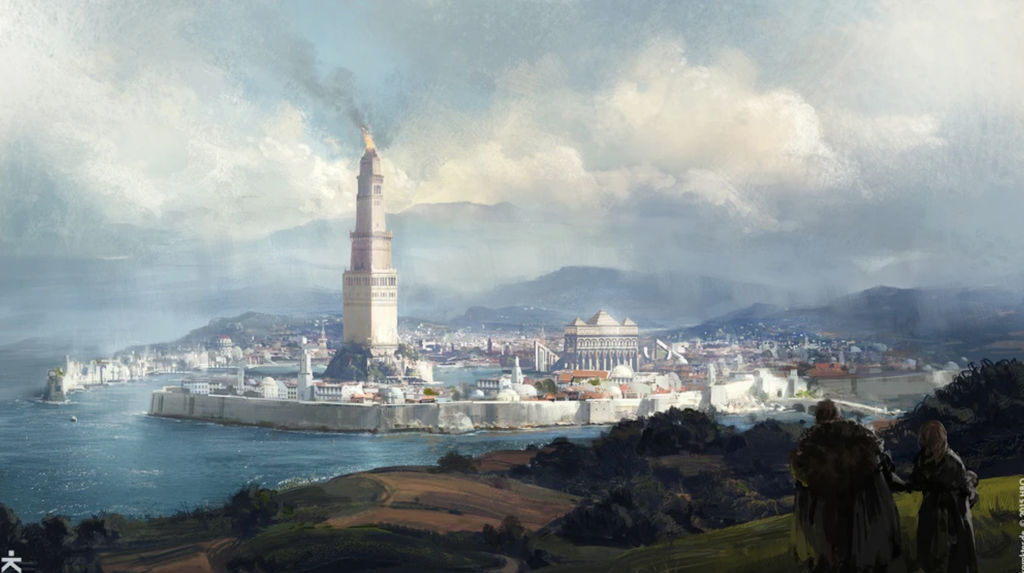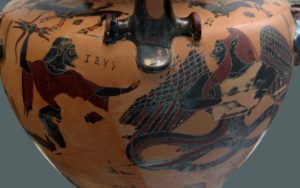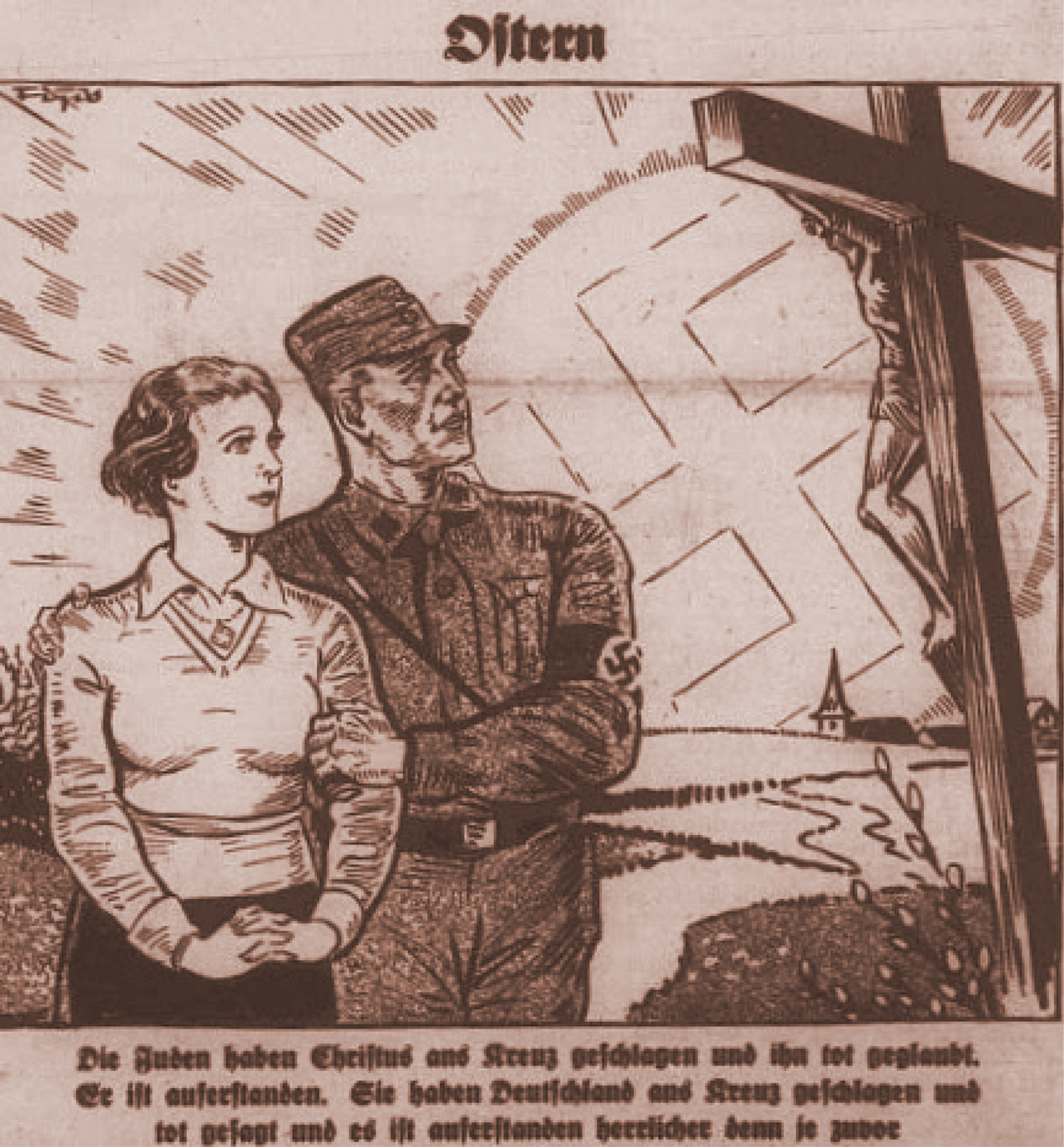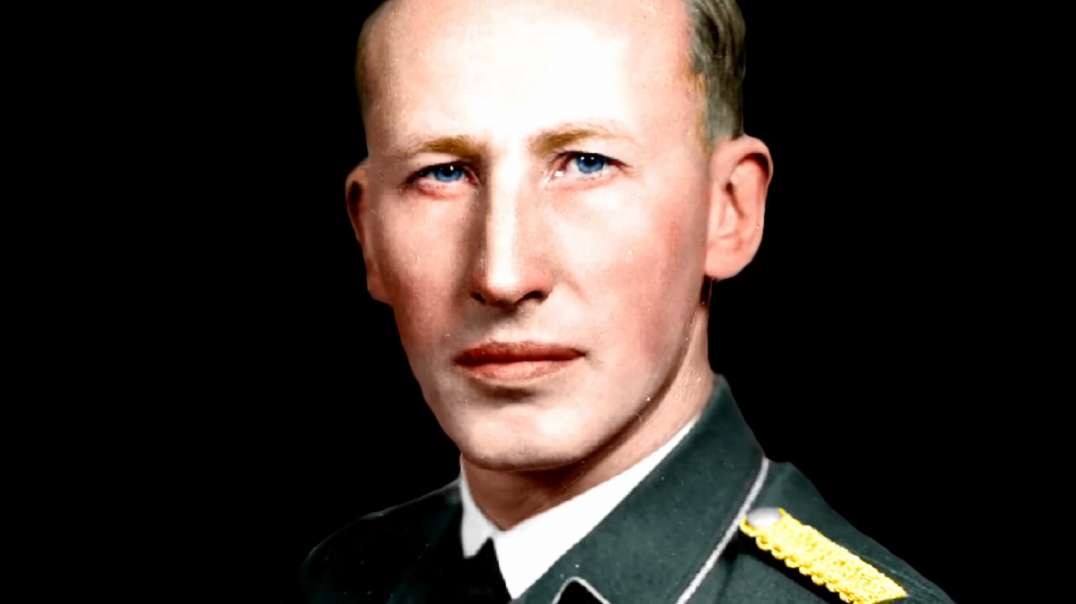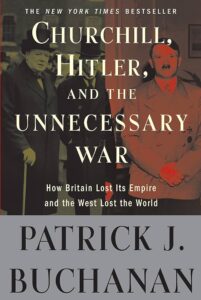 Seeing the discussion on the round table as far as implementing the final solution is concerned, at one point Heydrich mentions that the United States had entered the war. This reminds me of a famous passage in Pat Buchanan’s book, Churchill, Hitler, and the Unnecessary War: How Britain lost Its Empire and the West Lost the World (I bought it fourteen years ago), where Buchanan asserted that the destruction of Jewry in WW2 didn’t cause the war but was the consequence of the war (page 311).
Seeing the discussion on the round table as far as implementing the final solution is concerned, at one point Heydrich mentions that the United States had entered the war. This reminds me of a famous passage in Pat Buchanan’s book, Churchill, Hitler, and the Unnecessary War: How Britain lost Its Empire and the West Lost the World (I bought it fourteen years ago), where Buchanan asserted that the destruction of Jewry in WW2 didn’t cause the war but was the consequence of the war (page 311).
Indeed: had it not been for the Anglo-Americans, the Jews would have been deported either to Madagascar or Palestine, without extermination programmes. In other words, without Churchill and Roosevelt, there would have been no holocaust.
On the other hand, one of the things I like about the film is that almost everyone at the round table doesn’t give a damn about genocide. This contrasts sharply with the American neo-Nazis, who have been preaching for many decades that the Nazis weren’t evil; that is, that they were incapable of planned genocide. As I said to Jamie in the morning, with these pseudo-men we will get nowhere. We need real men, like the SS officers who sat at this table, to solve the problems.
Of course: the Christian ethics that has conquered even the soul of the Western atheist doesn’t allow such planning. But by following those standards of morality one allows the people in power to exterminate the Aryans, which is what is happening. It is impossible not to be an exterminationist. Nowadays the zeitgeist is to exterminate the Aryan. At the SS officers’ table, the zeitgeist was to exterminate the enemy of the Aryan. It is not possible to coexist peacefully with Jews or say blacks because there will be cultural subversion or gradual extermination of the Aryan through interbreeding with the coloureds (as happened in Brazil).
In my previous post on this series, I said that from that day on I would’t drop names of those who belong to the racial right because sometimes I will need their favours.
Very well: without mentioning names, recently a highly respected dean of race realism mentioned in his video that the founding fathers of his country had stipulated that those who emigrated to America had to be ‘whites of good character’. But the dean ignores that, while that is true, the forces of Yankee Puritanism were to trump that between-the-lines pronouncement of the founders. There is no comparison between those lines with the Third Reich, where racism was as explicit as the old Indo-Aryan codes that created the caste society. But the Third Reich was infinitely better than Manu’s Law because of its exterminationism (the Indo-Aryans became mixed over the centuries precisely because they failed to exterminate the Indians). As far as I know, the only notable American who has dared to speak in such practical exterminationist terms, as the SS of the round table, was William Pierce in Who We Are.
One more thing. In the 25th minute of the film, an officer mentions the problem of mixed marriages. If you check the red letters in the long article ‘American racial history timeline’, you will see that long before the Jews had any influence in that country, there had already been several states in the US that repudiated anti-miscegenation laws! That would never, ever have happened in a triumphant Third Reich, for the simple fact that, unlike that between-the-lines pronouncement of the US founding fathers, it was an Aryan Reich designed specifically for what we now call the 14 words, not tainted by Christian bullshit (Protestantism) or neochristian bullshit (the ideals of the 1770s and 1780s that led to the founding of the American republic and the French Revolution).


